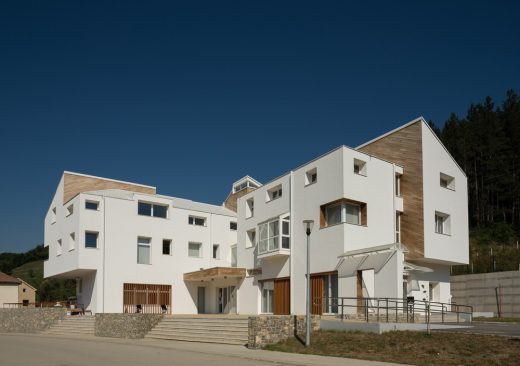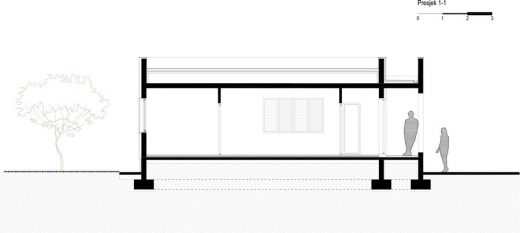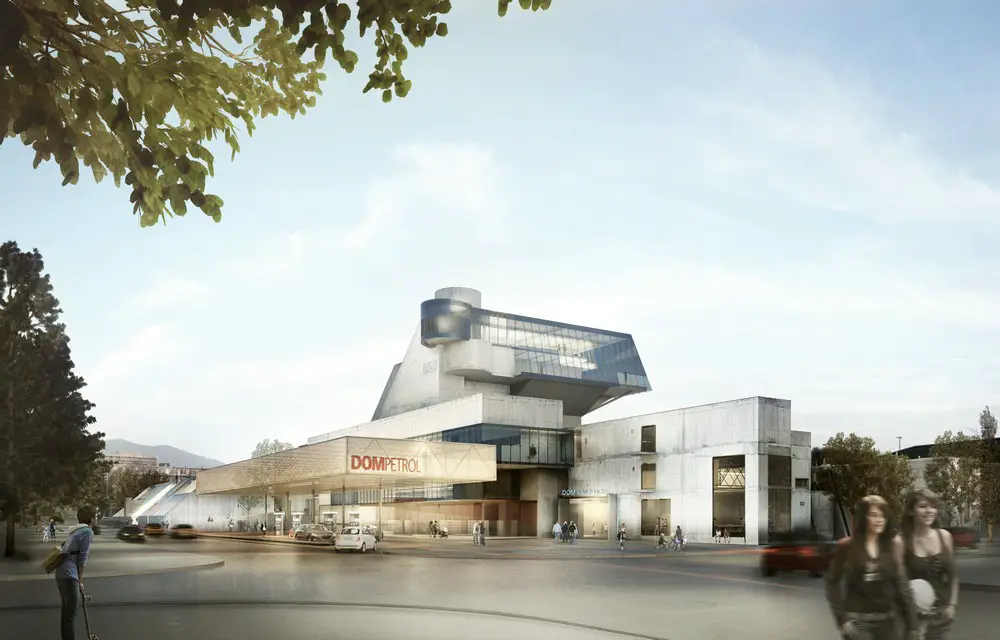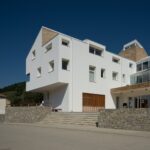Montenegro Developments, Ariatic building project news, Design architects property
Montenegro Developments : Architecture
New Adriatic Architectural Projects – Southeast Europe Built Environment
post updated 29 March 2024
Montenegro Architecture Designs – chronological list
Adriatic Architecture Developments, Southeast Europe
Montenegro Developments
Administrative Center of Petnjica Municipality
Gasulhana, Hatme & Mevlud Central Building
We aim to add more buildings in this Adriatic country soon – submissions are welcome.
Location: Montenegro, Central South-Eastern Europe
European Building Developments
Contemporary Architecture inMontenegro
Montenegro Buildings– selection below:
Administrative Center of Petnjica Municipality building designed by Rifat Alihodzic architect:

photos : Adis Ramović Photography
Petnjica is the newest administrative unit in Montenegro having cca 6,800 citizens only. It gained municipality status in 2013. It is situated in area called Bihor, which had parish status in medieval times with significant fortification facility, nowadays being ruins.
House In The Field – Montenegro building designed by Arhimetrija architects:

image from architecture practice
House in the Field is a space for family of four, to relax and enjoy nature. The owners live in the city and like to run from the noise into the peace of their field with mandarin trees. It is located at the foot of the hill with rich vegetation, which gives a strong feeling of intimacy and privacy to the owners.
Bosnia and Herzegovina Buildings
Montenegro
Montenegro (meaning “Black Mountain”) is a country in South eastern Europe. It has a coast on the Adriatic Sea to the south-west and is bordered by Croatia to the west, Bosnia and Herzegovina to the northwest, Serbia to the northeast, Kosovo to the east and Albania to the south-east.
Its capital and largest city is Podgorica, while Cetinje is designated as the Prijestonica, meaning the former Royal Capital City.
In the 10th century, there existed three Slavic principalities on the territory of Montenegro: Duklja, Travunia and Rascia. By the 13th century, Zeta had replaced Duklja. By the 15th century, southern Montenegro (Zeta) was more often referred to as Crna Gora (Venetian: monte negro). As the Crnojević dynasty disintegrated, Montenegro was ruled by its Bishops until 1696, and then by the House of Petrović-Njegoš until 1918. From 1918, it was a part of Yugoslavia. On the basis of an independence referendum held in 2006, Montenegro declared independence.
This index page is for architectural projects in this Southeast European country on the e-architect website
Website: Visit Montenegro
Comments / photos for the Montenegro Architecture Information page welcome



